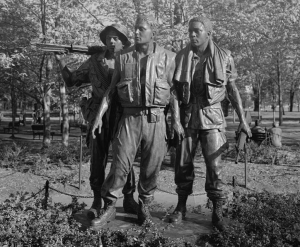
Post Traumatic Stress Disorder (PTSD) is an anxiety disorder that develops out of some kind of extreme psychological event that usually involved the threat of injury or death. This can be war, rape, assault, or domestic abuse, as just a few examples.
The symptoms usually show themselves as flashback episodes, nightmares, associating events in your life with that prior event, emotional numbing, despondency, hyper-vigilance, anger, and physical manifestations of headaches, dizziness, and agitation.



 Now that the title has got you reading, I want to talk about a facet of hypnosis that is often under-discussed.
Now that the title has got you reading, I want to talk about a facet of hypnosis that is often under-discussed. A lot of married people who come to me for couple’s therapy are in a very ambiguous position: they are undecided as to whether they should try to fight for the marriage or if it would be more wise to divorce and start to improve their lives separately.
A lot of married people who come to me for couple’s therapy are in a very ambiguous position: they are undecided as to whether they should try to fight for the marriage or if it would be more wise to divorce and start to improve their lives separately.